The V IMFD Workshop takes place with the presence of leading international figures
January 2024. The V Workshop of the Millennium Institute Foundational Research on Data, which took place from January 10 to 12, first at the Peñalolén campus of the Adolfo Ibáñez University in Santiago, and then at the Coraceros Hall of the Pullman Hotel in Viña del Mar, was held over three days and traveled from the mountains to the sea.
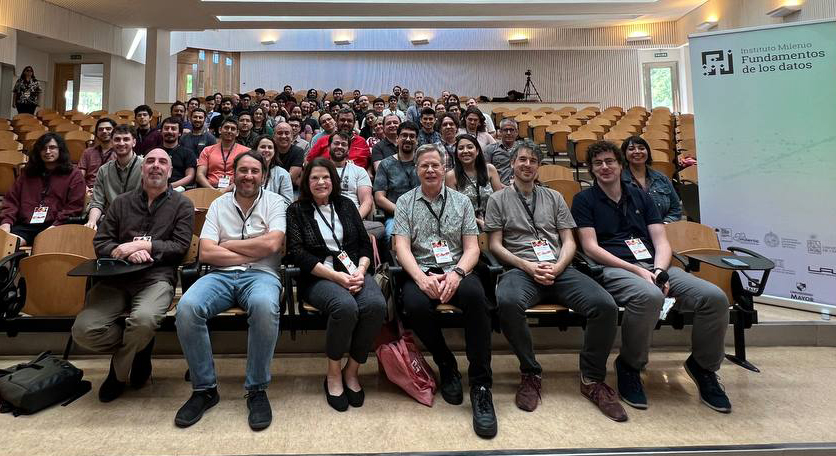
"This is the first large workshop we have held after the renewal of the IMFD, a process that meant a great effort by all the teams. That is why today we are meeting with the great challenge of thinking about our research with a time perspective, seeking how to strengthen both the People that make up the IMFD, as well as the research areas in which we work," said Juan Reutter, director of the Millennium Institute Foundational Research on Data (IMFD).
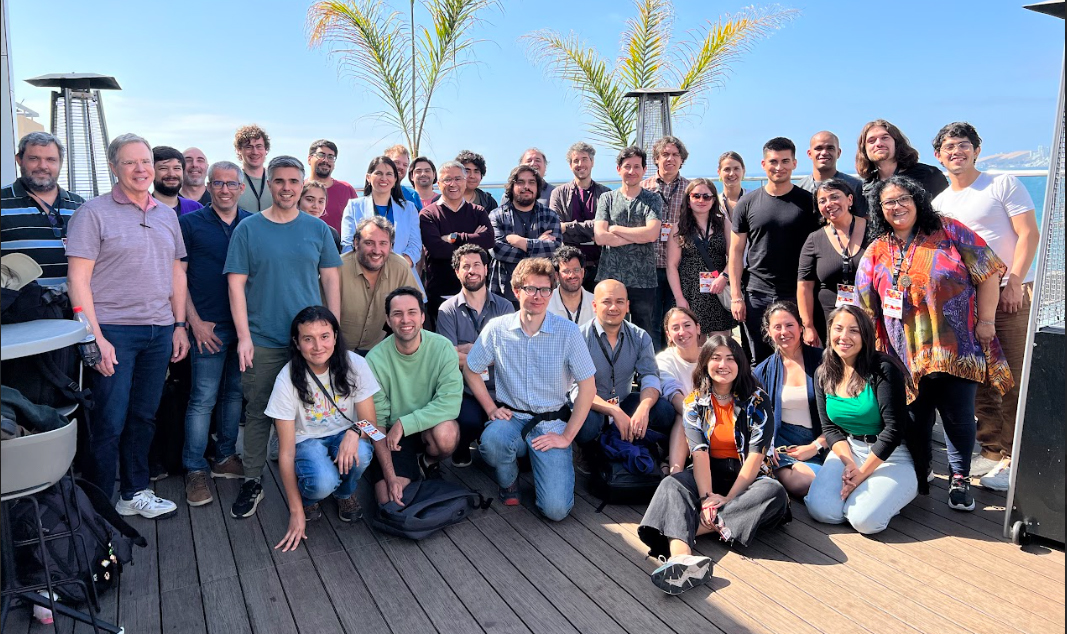
The activities were attended by leading scientists who are members of the IMFD's international advisory board: Ernesto Calvo, Director of the Interdisciplinary Lab for Computational Social Science (iLCSS) and Professor of Government and Politics at the University of Maryland, U.S.A.; Jeffrey VitterProfessor Emeritus in Computer & Information Science at the U. of Mississippi, USA, and René VidalProfessor in the Schools of Engineering and Medicine, and Director of the Data Science and Engineering Innovation Initiative at the U. of Pennsylvania, USA.
Jeffrey Vitter noted that "doing these in-person meetings is invaluable: what you accomplish in three days of a conference like this can take months of work when you are not sharing the same space." He also added that "listening and understanding the problems that students have is what helps move research forward." Vitter is an international leader in the field of information storage and retrieval theory, and mathematical design and analysis of computational algorithms. He has been elected a Fellow of the American Association for the Advancement of Science, the Association for Computing Machinery and the Institute of Electrical and Electronics Engineers, among other distinctions.
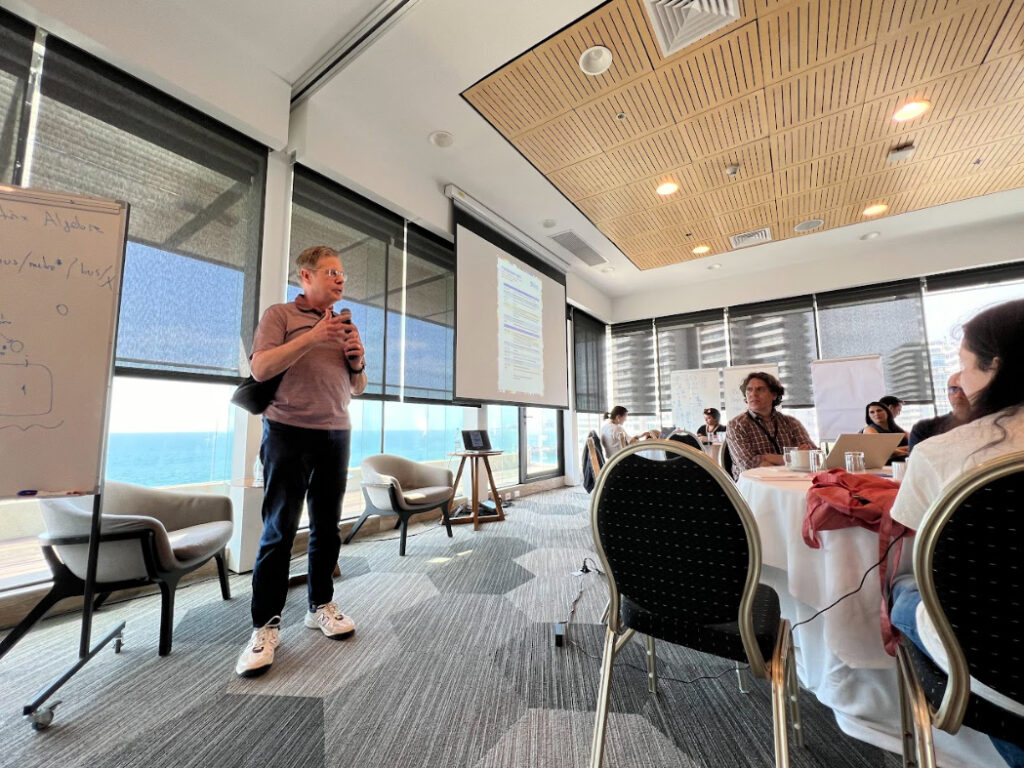
Keynote lectures and poster sessions
During the first day, the nearly 100 attendees attended three keynote lectures given by the international advisors, starting with Jeffrey Vitter's talk on "Optimal space bounds for text indexing". René Vidal spoke on "Explainable AI by Design via Semantic Information Pursuit" and Ernesto Calvo closed with a talk on "Confirmation, Refutation, and Affect in Social Media Amplification".
In addition, more than 30 scientific posters were presented by students and researchers from different lines of research. The works that were awarded at the end of the day were "Crimes related to drug trafficking in the province of Santiago: Analysis of its determinants from its spatial distribution", by Sebastián Rainao and Camila Rojas; "Recommendation system of candidates for job offers", from the IMFD Innovation and Technology Transfer area, presented by Juan José Alegría, Gabriel Norambuena and Camila Henríquez; and "Moral Foundations of Chilean Political Speeches", interdisciplinary research by Daniel Alcatruz, Juan Reutter, Sergio Toro, and presented by Lucas Valenzuela.
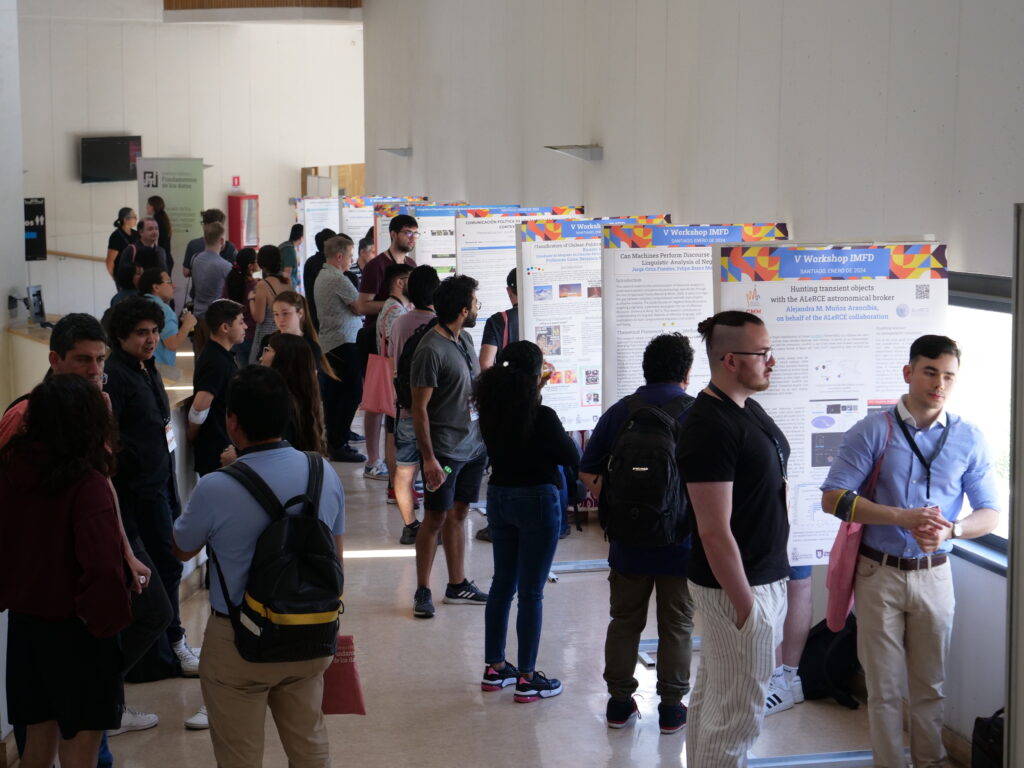
Interdisciplinary work sessions
For the second day of the Workshop, part of the researchers and students traveled to Viña del Mar, where - in sessions led by Aidan Hogan, deputy director of the IMFD - working groups were formed with the goal of exploring new research topics and strategies to address them.
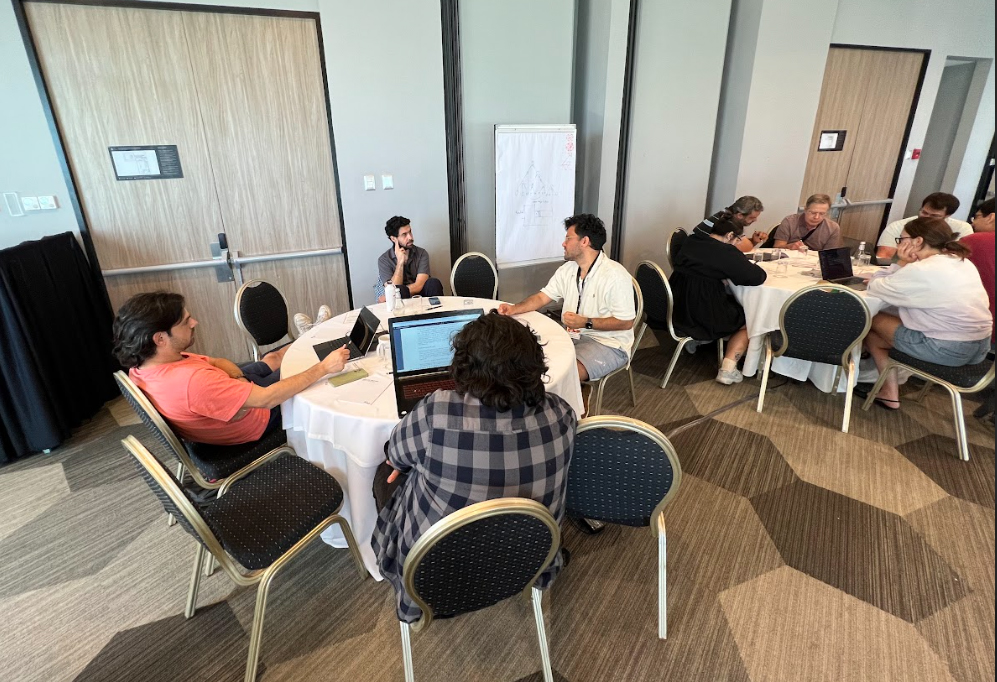
During these two days, the members of the international advisory committee also shared their experiences in technology transfer applied to the area of data science, as well as the challenges of developing interdisciplinary research between computation and social sciences.
The experts highlighted the importance of IMFD's work. For Ernesto Calvo, the IMFD's work is a regional leader, since the applications under development that he learned about at the workshop, such as MillenniumDB, are unique in Latin America. He stressed that the main challenge facing the institute today is not related to research, but to keep the project funded and running: "Convincing the political world that it is worth investing in making projects like this sustainable over time is an important and necessary challenge", he emphasized.
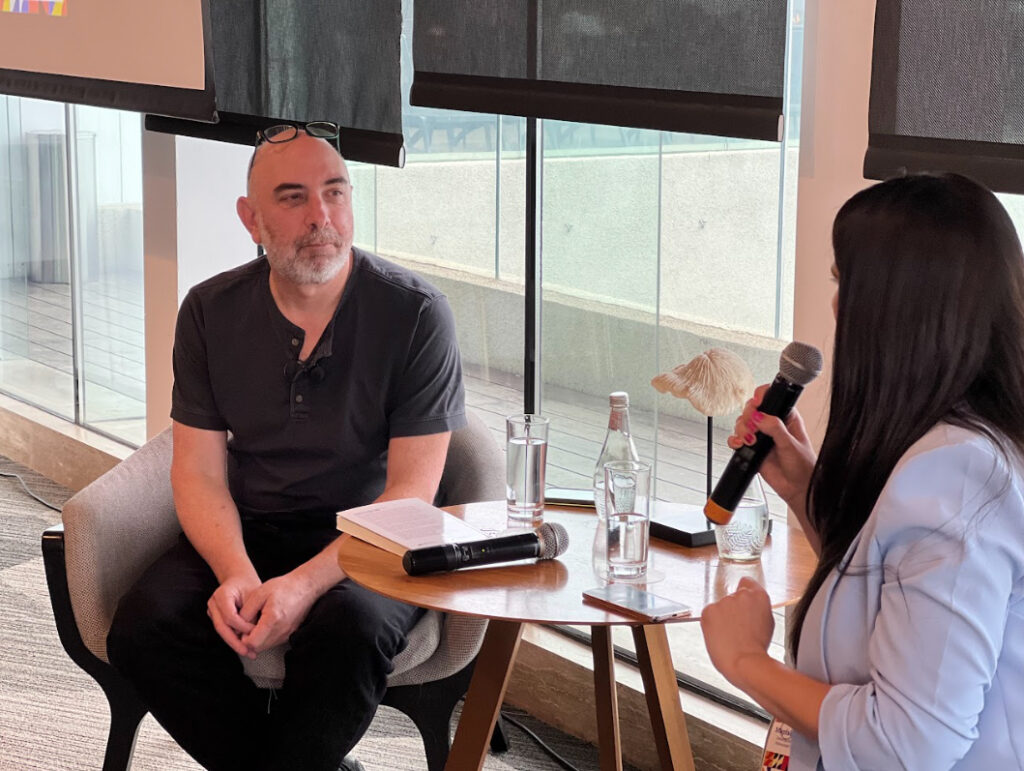
René Vidal said he was very impressed with the IMFD team, as he knows first-hand how difficult it is to lead multidisciplinary teams and achieve collaboration between different areas: "It is very interesting to see the People working together, you did it and you should be proud of having achieved it in a short period of time. Now you have to think about where you want to be in three more years, for which you should focus on continuing this work and obtaining funds, because guaranteeing the permanence of this project is beneficial for the country and also for all of Latin America".
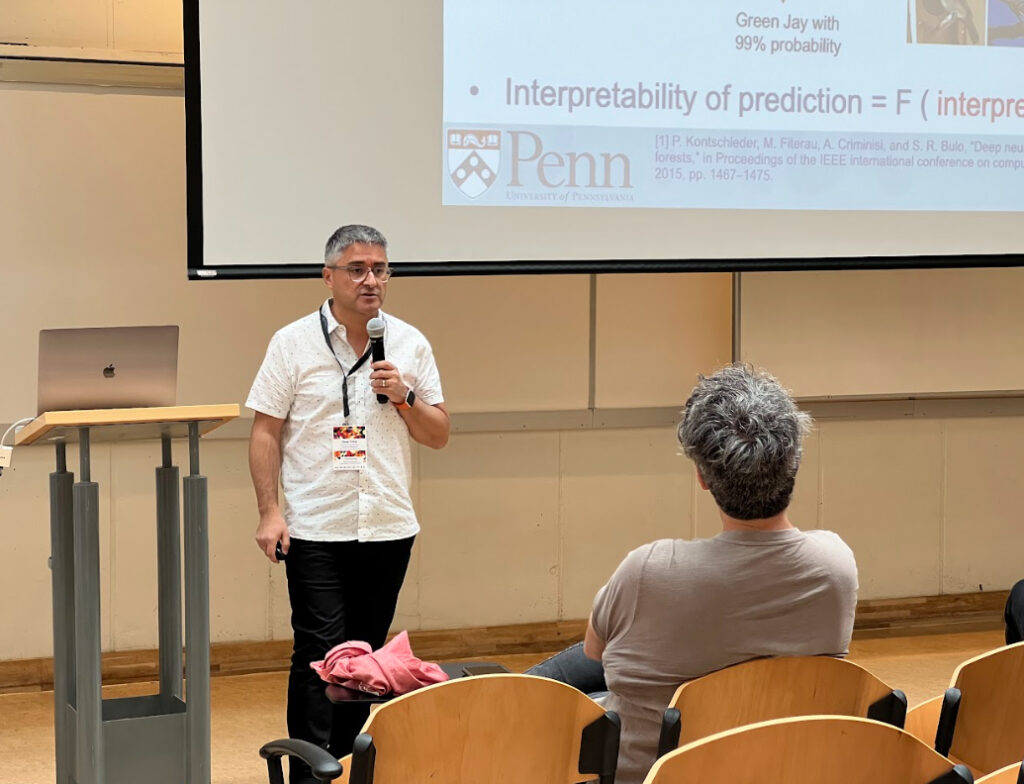
The IMFD workshops seek to bring together academics, students and researchers who are part of the institute, in order to share their experiences, challenges and promote interdisciplinary and collaborative research that characterizes the cutting-edge work carried out by this center.
